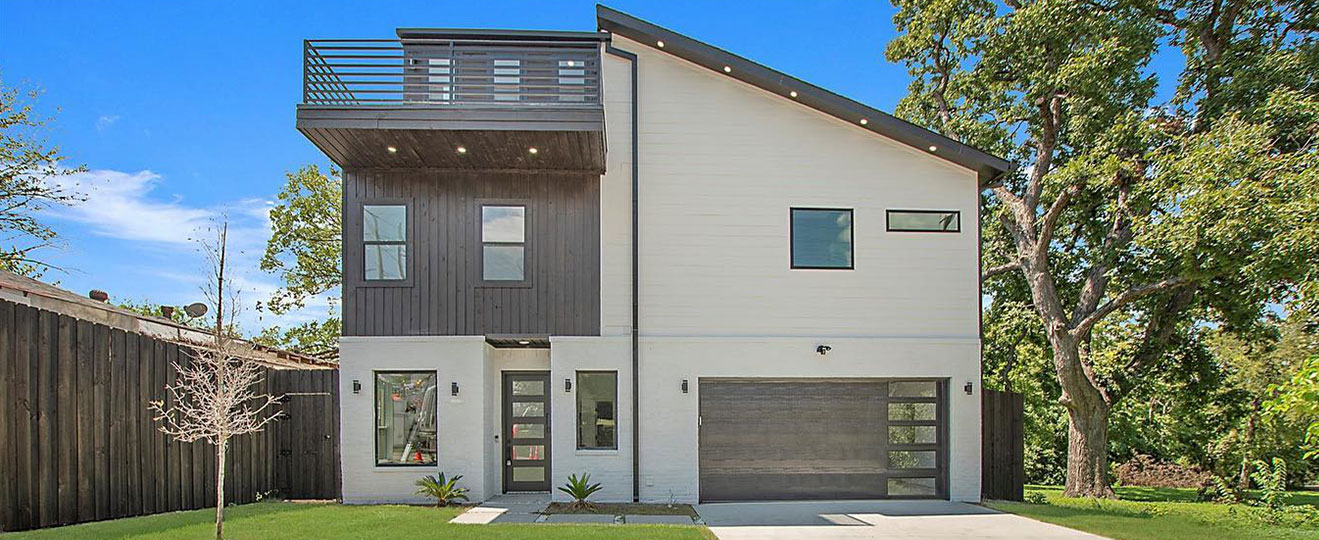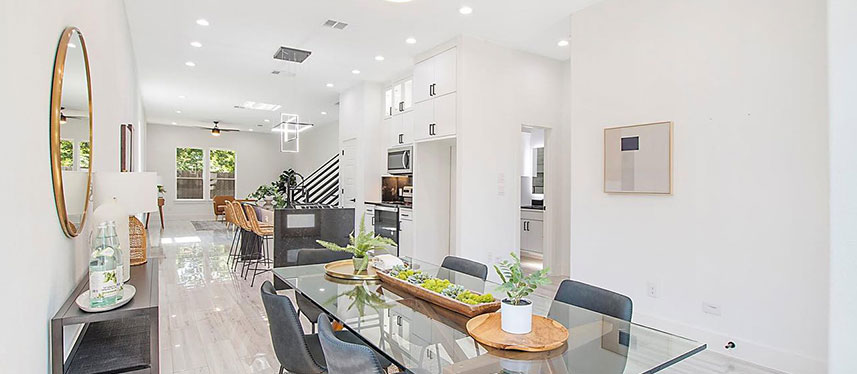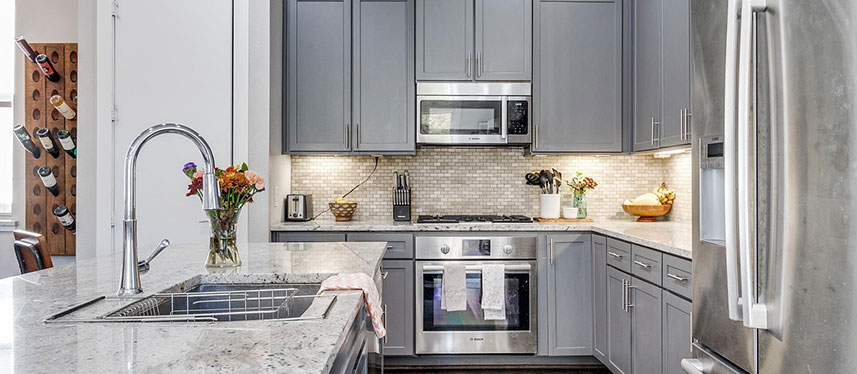
Introduction
Garage Conversion in Fremont is a great way to make better use of your space. It offers a new living area, a home office, or even a rental unit, adding both functionality and value to your property. Fremont’s friendly neighborhood and growing community make it an ideal location to consider converting your garage.
Essential Garage Conversion Rules for Fremont
What you can build
Maximum Size
The maximum size for a garage conversion in Fremont is typically around 800 square feet. This allows for a comfortable living space while complying with local regulations.
Side/rear setbacks
You must maintain a minimum side and rear setback of 4 feet. This ensures adequate space between structures and helps with accessibility and safety.
Height limit
The height of your garage conversion should not exceed 16 feet. This helps keep the new structure in harmony with the existing buildings.
Building separation
There should be at least 6 feet of separation between the converted garage and any other buildings on the property to meet fire safety standards.
Permitting Process Timeline
Standard
The standard permitting process usually takes about 4-6 weeks. This includes the time needed for plan reviews and inspections.
Historic Property review
If your property is historic, expect an additional review period of 2-3 weeks to ensure compliance with preservation guidelines.
Zoning Regulations in Fremont
Fremont has specific zoning regulations that must be followed for garage conversions.
Garage Conversion Size Limitations
| Zoning District | Maximum Floor Area Allowed |
| R-1 (Single Family) | 800 sq ft |
| R-2 (Two Family) | 1,200 sq ft |
| R-3 (Multifamily) | 1,600 sq ft |
| R-4 (Neighborhood Mixed Use) | 1,000 sq ft |
Height Limitations
The height of a converted garage must not exceed 16 feet to ensure it blends well with surrounding structures.
Building Coverage
Your garage conversion should not cover more than 40% of your lot area. This ensures there is enough open space left on your property.
Location
| Property Type | Location Requirement |
| Single-Family Homes | Must be attached to the main house or within a designated area |
| Duplex | Can be attached or detached but within property boundaries |
| Multifamily | Should be within the designated lot area and comply with spacing regulations |

Exterior details
The exterior of the garage conversion should match the primary house in materials and color to maintain aesthetic consistency.
Setbacks and Buffer Zones
Maintain a minimum setback of 4 feet from property lines to ensure adequate space and privacy.
Minimum Lot Area
Connection for utilities
Utility connections should be extended from the main house, ensuring proper plumbing, electrical, and HVAC systems.
Fire safety
Your garage conversion must include smoke detectors, fire extinguishers, and proper egress windows to meet fire safety codes.
Room specifications
- Living Area: The living area should be at least 150 square feet to provide a comfortable living space.
- Kitchen: The kitchen should include essential appliances and have a minimum area of 50 square feet.
- Bathroom: The bathroom should be at least 30 square feet and include a sink, toilet, and shower.
- Ceiling Height: The ceiling height should be at least 7 feet to ensure a spacious and comfortable environment.
Short-term Rentals and Home Occupations Regulations
Short-term rentals and home occupations are allowed with proper permits.
Building Codes
Your garage conversion must comply with local building codes, including electrical, plumbing, and structural requirements.
Fremont Garage Conversion Permit Guidelines
| Permit Type | Description | Estimated Fee |
| Building Permit | Required for structural changes | $500 |
| Electrical Permit | Needed for electrical work | $200 |
| Plumbing Permit | Necessary for plumbing installations | $300 |
| Mechanical Permit | For HVAC systems | $250 |
| Planning Review | Review of the overall plan | $150 |
Property Requirements
Your property must comply with zoning regulations and minimum lot size requirements to qualify for a garage conversion.
Parking
You must provide at least one additional parking space on the property for the converted garage.
Front Setbacks
Maintain a front setback of 20 feet to ensure proper distance from the street.
Side and Rear Setbacks
A minimum setback of 4 feet from side and rear property lines is required.
Open Space and Rear Yards
Your conversion should not reduce the open space and rear yard area below the minimum required by zoning laws.
Properties That Qualify
Properties in residential zones with adequate lot size and setbacks qualify for garage conversions.

Development standards
Single-family Homes
Must follow R-1 zoning regulations and maintain aesthetic consistency with the main house.
Multi-family Properties
Can convert garages but must meet R-3 zoning requirements and provide adequate parking.
Duplex Properties
Allowed under R-2 zoning with specific guidelines for setbacks and building separation.
Property designations
- Flood Zones: Garage conversions in flood zones must include flood-proofing measures.
- Easements: Ensure no construction occurs over utility easements.
- Historic Properties: Additional reviews are required to maintain historic integrity.
Summary
Garage Conversion in Fremont offers a great way to make better use of your space while adding value to your property. With proper planning and adherence to local regulations, your project can add both functionality and charm to your home.
FAQs
Yes, you need several permits, including building, electrical, plumbing, and mechanical permits. The permitting process ensures that your conversion meets all safety and building standards. It’s important to check with the local planning department for specific requirements.
The standard process takes about 4-6 weeks, with additional time if your property is historic. This timeframe includes plan reviews, inspections, and any necessary revisions. Be sure to submit all required documents to avoid delays.
You must provide at least one additional parking space on your property. This is to ensure that there is adequate parking for both the main house and the converted unit. Check with local zoning laws for specific parking regulations.
Yes, the height should not exceed 16 feet to comply with local regulations. This helps maintain the aesthetic harmony of the neighborhood. Always verify with local building codes for any updates or changes.
You need a minimum setback of 4 feet from side and rear property lines. Setbacks help ensure privacy and space between buildings. It’s important to adhere to these regulations to avoid any legal issues.
Yes, but you must include flood-proofing measures in your conversion plan. This may include raising the floor level and using water-resistant materials. Always check with local authorities for specific requirements.
The maximum size is typically around 800 square feet. This allows for a functional living space without compromising the overall property layout. Verify with local zoning regulations for any specific size limits.
Yes, but you need the proper permits and must comply with local regulations. Short-term rentals may require additional inspections and adherence to specific guidelines. Ensure you are aware of all the rules before proceeding.
It should match the primary house in materials and color. This maintains the visual appeal and consistency of your property. Using similar design elements helps the conversion blend seamlessly with the existing structure.
Yes, utility connections should be extended from the main house. This includes plumbing, electrical, and HVAC systems. Proper utility setup ensures the new space is fully functional and meets all building codes.
You must include smoke detectors, fire extinguishers, and proper egress windows. These safety features are crucial for protecting occupants in case of an emergency. Always follow local fire safety codes to ensure compliance.
Permit fees vary, but you can expect to pay around $1,400 in total. This includes fees for building, electrical, plumbing, and other necessary permits. Check with your local planning department for detailed fee structures.
No, your lot must be at least 4,000 square feet to qualify. This ensures there is adequate space for the new unit and outdoor areas. Verify with local zoning regulations for any exceptions or special cases.
The ceiling height should be at least 7 feet. This ensures a comfortable and spacious environment for the occupants. Always check local building codes for specific height requirements.
Yes, a planning review is required as part of the permitting process. This review ensures your plans comply with local zoning and building regulations. It helps identify any potential issues before construction begins.
Yes, but you must comply with R-3 zoning regulations. These regulations include specific guidelines for setbacks, building separation, and parking. Always consult with local authorities for detailed requirements.
The bathroom should be at least 30 square feet and include a sink, toilet, and shower. Ensuring the bathroom meets these standards provides a functional and comfortable space. Proper plumbing and ventilation are also crucial.
Yes, historic properties require additional reviews to maintain their integrity. This includes ensuring that any changes are in line with preservation standards. Consult with local preservation authorities for specific guidelines.
Yes, as long as it meets the required setbacks and zoning regulations. Detached garages provide flexibility in design and usage. Ensure you follow all local building codes and obtain the necessary permits.
The living area should be at least 150 square feet. This provides enough space for a comfortable living environment. Incorporating good design and layout can maximize the usability of the area.